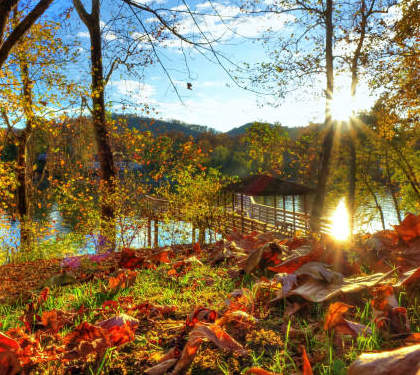Cities In Virginia - Quick Facts, History & Geography
Virginia Quick Facts
Virginia played a central role in early American history, including the establishment of Jamestown, the first permanent English settlement in North America. Virginia was the 10th state to gain statehood on June 25th, 1788. There are 591 places in Virginia - 229 incorporated places (39 cities and 190 towns) and 362 CDP's. Virginia is the 35th largest state by land area and the 12th largest state by population with more than 8.6 million residents. The state nickname is "The Old Dominion State", this is because of its status as the first American colony of the Brith Empire. Home to prestigious universities like the University of Virginia, Virginia Tech, and the College of William & Mary. Eight U.S. presidents were born in Virginia, including George Washington and Thomas Jefferson. Virginia was a major battleground during the Civil War, with notable sites like Manassas, Fredericksburg and Petersburg. There is an asteroid crater under the Chesapeake Bay and has been there for 35 million years. It measures 1.3 KM deep and is 85 KM across. Famous people born in Virginia include Rob Lowe, Sandra Bullock, Missy Elliott, Warren Beatty, Donna Dixon and Wanda Sykes.
The History of Virginia
Virginia's history began in 1607 when English settlers established the Jamestown Colony, the first permanent English settlement in North America. Led by Captain John Smith, the colonists faced numerous challenges, including conflicts with Native American tribes and struggles for survival. Virginia's economy thrived with the introduction of tobacco cultivation, which became a major cash crop. In 1619, the Virginia House of Burgesses convened, marking the first representative legislative assembly in the American colonies. Virginia played a crucial role in the American Revolution. Leaders like George Washington, Thomas Jefferson and Patrick Henry emerged as advocates for independence. Several prominent Founding Fathers hailed from Virginia, including George Washington and Thomas Jefferson. Jefferson authored the Declaration of Independence, articulating the principles of individual rights and self-governance. Virginia's history took a darker turn during the Civil War. The state joined the Confederacy in 1861, and its soil became a major battleground. After the Civil War, Virginia underwent a period of Reconstruction, marked by challenges in rebuilding the cities in Virginia and integrating newly freed slaves into society. The 20th century brought technological progress and cultural shifts. The state's northern region, known as the "D.C. Metro," became a hub for technology companies and government agencies. Virginia takes pride in preserving its historical landmarks, including Colonial Williamsburg, the Historic Triangle (Jamestown, Williamsburg, and Yorktown), and the homes of Founding Fathers like Mount Vernon and Monticello.
The Geography of Virginia
Virginia is bordered by 5 states - Maryland, West Virginia, Kentucky, Tennessee and North Carolina. The easternmost range of the Appalachian Mountains, the Blue Ridge Mountains, runs through the western part of the state. Nestled between the Blue Ridge Mountains to the east and the Allegheny Mountains to the west, the Shenandoah Valley is a fertile and picturesque region. The eastern part of the state is characterized by the Coastal Plain, which includes the Tidewater and the Eastern Shore. Virginia is crisscrossed by numerous rivers, including the James River, the York River, and the Rappahannock River. Virginia's coastline along the Atlantic Ocean offers beautiful beaches, fishing opportunities, and tourism. Virginia is home to several national parks and forests, including Shenandoah National Park, which features the scenic Skyline Drive along the Blue Ridge Mountains, and George Washington and Jefferson National Forests, offering outdoor recreation and natural beauty.
Virginia Relocation Guide
Northern Virginia cities revolve around the big city hustle of Washington D.C., while most cities in southern Virginia are full of small towns, farms, beaches and historic places. Relocation opportunities to Virginia greatly differ in the southern and northern parts of the state. Look for I-495 on a map of northern Virginia and you'll see the area known as "inside the Beltway," a phrase that describes government "policy wonks." A local search in northern Virginia will turn up a great variety of government jobs - everything from geologists to spies. Rental and condo apartments in northern Virginia range from luxury high rises to affordable garden complexes. Many excellent hotels and restaurants are in northern Virginia because of nearby museums, theaters, events and attractions. Southern Virginia is more rural generally with cities such as Richmond, the seaport Hampton Roads, Colonial Williamsburg and Virginia Beach on the Atlantic Ocean.
Virginia has great public services and infrastructure, including schools, public transportation and highways. The thriving economy offers jobs at military bases, 47,000 farms, many technology companies, and a great number of U.S. government agencies. Virginia's public schools are rated among the top ten of all states, and there is an excellent system of state colleges and universities. The weather is relatively mild in Virginia, with steamy summers.
The average crime rates in cities in Virginia is well below the national average by almost 35%. Even larger cities like Arlington and Virginia Beach have excellent crime rates for cities of their size. Cost of living in Virginia is slightly higher than average, mainly due to high housing costs.

